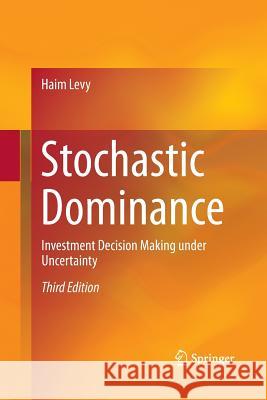Stochastic Dominance: Investment Decision Making Under Uncertainty » książka
topmenu
Stochastic Dominance: Investment Decision Making Under Uncertainty
ISBN-13: 9783319330594 / Angielski / Miękka / 2016 / 505 str.
Kategorie:
Kategorie BISAC:
Wydawca:
Springer
Język:
Angielski
ISBN-13:
9783319330594
Rok wydania:
2016
Wydanie:
Softcover Repri
Ilość stron:
505
Waga:
0.72 kg
Wymiary:
23.39 x 15.6 x 2.69
Oprawa:
Miękka
Wolumenów:
01
Dodatkowe informacje:
Wydanie ilustrowane











